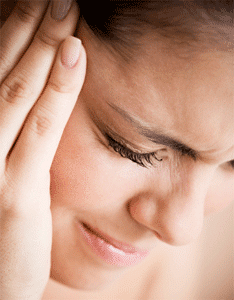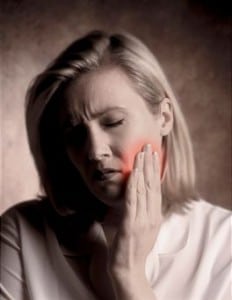Studies Show Connection Between TMJ and Irritable Bowel Syndrome
Temporomandibular joint disorder, or TMJ, can be an extremely painful [...]
Temporomandibular joint disorder, or TMJ, can be an extremely painful [...]
Clicking, snapping, popping – whatever you want to call it, [...]
 Bruxism is the dental or medical term used to describe clenching or grinding teeth. Bruxism usually occurs without the patient’s knowledge because it mostly happens during sleep. “Modern Medicine” is not in good agreement as to the causes of Bruxism because the causes and effects can differ widely from patient to patient. And most people never feel any symptoms until they break a tooth or experience TMJ disorders and pain.
Bruxism is the dental or medical term used to describe clenching or grinding teeth. Bruxism usually occurs without the patient’s knowledge because it mostly happens during sleep. “Modern Medicine” is not in good agreement as to the causes of Bruxism because the causes and effects can differ widely from patient to patient. And most people never feel any symptoms until they break a tooth or experience TMJ disorders and pain.
 TMJ is a painful condition that may significantly inhibit one’s ability to chew, bite, and even hear. Many body tissues may be affected by the condition, including muscles, nerves, tendons, ligaments, and teeth. The teeth, particularly, may have a strong affect on the development of the disorder, making TMJ an area of special interest for holistic dentists. This article is a basic overview of the disorder, its symptoms, and treatment options.
TMJ is a painful condition that may significantly inhibit one’s ability to chew, bite, and even hear. Many body tissues may be affected by the condition, including muscles, nerves, tendons, ligaments, and teeth. The teeth, particularly, may have a strong affect on the development of the disorder, making TMJ an area of special interest for holistic dentists. This article is a basic overview of the disorder, its symptoms, and treatment options.